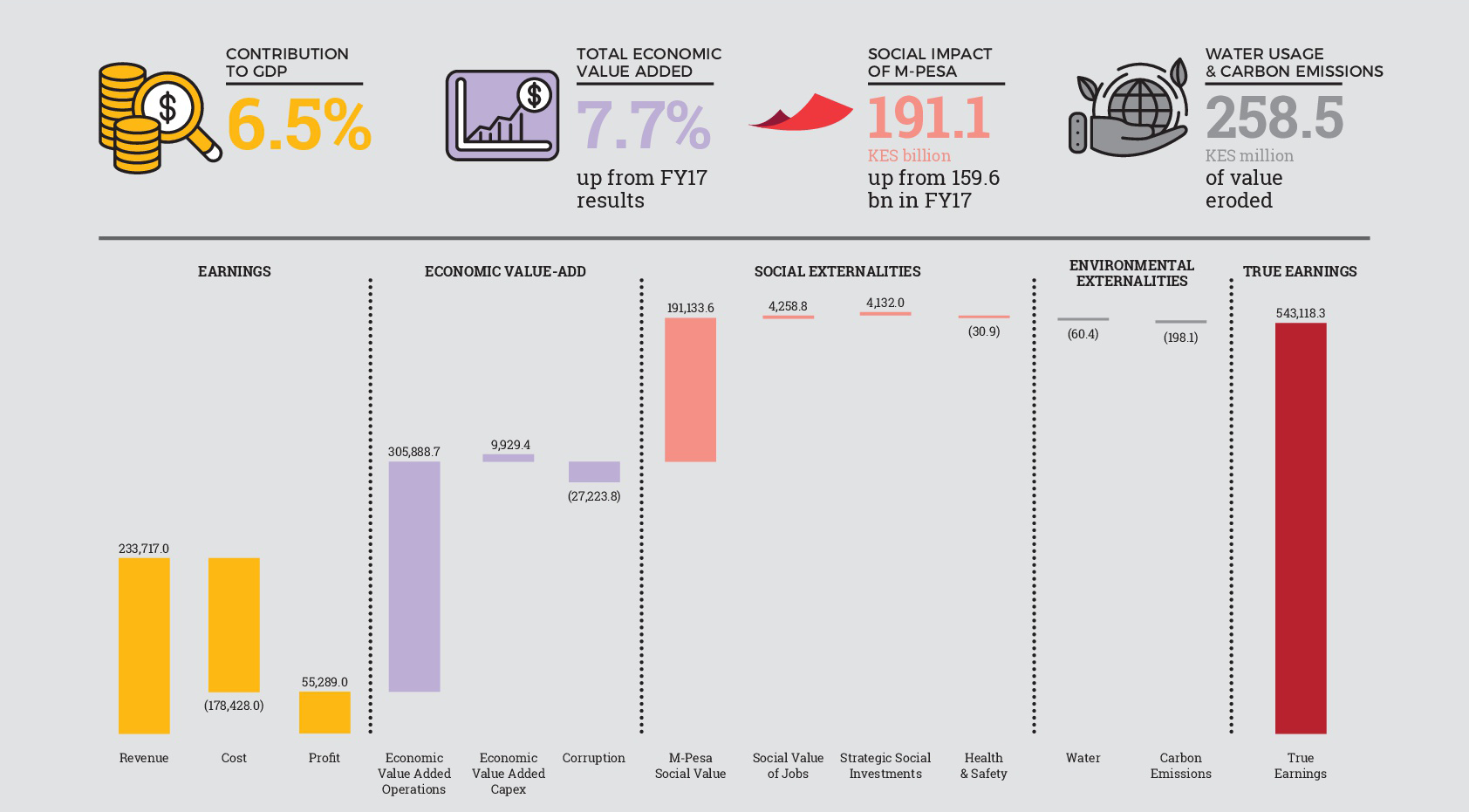THE TRUE VALUE WE HAVE CREATED
We assess the signifi cant indirect value contribution we make to the economy, society and environment in Kenya using the KPMG “True Value” methodology. When monetised, the net value of the most material social, environmental and economic impacts of the company, both positive and negative, gives an indication of the total value that Safaricom creates for the people of Kenya. The following “True Earnings” bridge shows that the total value we created for Kenyan society in FY18 was KES 543 billion, 12 per cent greater than in FY17 and around 9.8 times greater than the fi nancial profi t the company made in the same year. This ratio is slightly smaller than the 10.03 ratio of FY17. This can be ascribed to the growth in company profits in the last financial year, which changed by 14 percent.
The True Value assessment calculates that Safaricom sustained over 171,369 direct and indirect jobs during the year and, if the wider effects on the economy are included, this number increases to over 897,372 jobs.
Definitions
True Value: A three-step methodology that enables companies to (i) assess their ‘true’ earnings including externalities, (ii) understand future earnings at risk and (iii) develop business cases that create both corporate and societal value.
True Earnings: The first step of the True Value methodology, which quantifies and monetizes the material externalities of a company.
Total Economic Value: The nature and magnitude of the contribution to the Kenyan economy made by Safaricom.
Induced economic impact: Operational and capital expenditure by Safaricom will create additional employment and also benefit the employees of suppliers affected. A share of the additional income generated in this way will be spent on the consumption of goods and services, which, through linkages and multiplier effects, will benefit the broader economy by stimulating additional demand for the products and services produced within that economy. This collective impact is referred to as “induced economic impact”.



